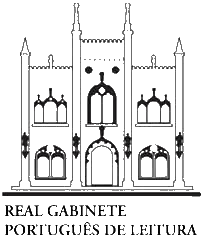O cancelamento do romance: uma reflexão crítica sobre leitura e censura
DOI:
https://doi.org/10.37508/rcl.2025.n54a1371Palavras-chave:
Cancelamento, Romance, Igreja Católica, Censura, História literáriaResumo
O romance, enquanto gênero moderno, foi alvo de olhares vigilantes e censórios desde o seu surgimento, e as tentativas de “cancelamento” da sua leitura, contemporaneamente, no Brasil, remontam a motivações e contextos históricos e ideológicos do século XIX, época de sua ascensão. Nesse contexto, o presente artigo aborda brevemente a história do romance no Brasil e sua relação com as práticas de controle literário no século XIX para, em seguida, traçar um paralelo com o cenário atual nacional, em que o “cancelamento” de livros em escolas brasileiras se configurou como um novo mecanismo de censura, afastando obras consideradas subversivas ou questionadoras de determinados valores éticos e morais exaltados pelas figuras condenatórias ao gênero. Ao analisar essa relação histórica e atual entre Literatura e censura, o artigo sugere que, apesar das mudanças nos contextos políticos e sociais no país, a tentativa de controle sobre a leitura e as narrativas continua a ser um reflexo das tensões ideológicas da sociedade, assim, a Literatura, e, particularmente, o romance, continua a ser instrumento desafiador a normas sociais e poderios impostos.
Downloads
Referências
ABREU, Márcia. Os caminhos dos livros. São Paulo: Mercado de Letras, Associação de Leitura do Brasil (ALB); São Paulo: FAPESP, 2003.
A BOA Nova: Tudo o que for honesto, justo, santo e amável, Pará, ano IX,
n. 11, p. 2-3, 5 fev. 1879.
CAMINHA, Adolfo. A Normalista. Rio de Janeiro: Magalhães & C. Editores, 1893.
CANCELAR. In: Dicionário Criativo. c2020. Disponível em: https://dicionariocriativo.com.br/significado/cancelar. Acesso em: 27 abril 2020.
CANDIDO, Antonio. Timidez do romance (Estudo sobre a justificativa da ficção no começo do século XVII). ALFA: Revista de Linguística, São Paulo, v. 18/19, p. 61-80, 1972-1973. Disponível em: https://periodicos.fclar.unesp.br/alfa/article/view/3508. Acesso em: 22 jan. 2025.
CANDIDO, Antonio. O direito à literatura. In: CANDIDO, Antonio. Vários escritos. 6. ed. São Paulo: Duas Cidades; Ed. 34, 2004. p. 169-191.
CHARTIER, Roger. A ordem dos livros: leitores, autores e bibliotecas na Europa entre os séculos XIV e XVIII. Brasília: Editora da UnB, 1990.
DA SILVA, Anaxsuell Fernando. As cores do crepúsculo: fabulação, teologia e literatura em Rubem Alves. Estudos de religião, [S. l.], v. 31, n. 2, p. 261-284, maio-ago. 2017. DOI: https://doi.org/10.15603/2176-1078/er.v31n2p261-284
DARNTON, Robert. A história do livro: um retrato cultural da Europa. São Paulo: Companhia das Letras, 1995.
DARNTON, Robert. O beijo de Lamourette. Editora Companhia das Letras, 2010.
DE ASSIS DUARTE, Eduardo. Por um conceito de literatura afro-brasileira.
Rassegna iberistica, [S. l.], v. 36, n. 102, p. 259-280, dez. 2014.
DE PÁDUA CASTRO, Sandra. O imaginário na construção da realidade e do texto ficcional. Revista Txt: Leituras Transdisciplinares de Telas e Textos, Belo Horizonte, MG, v. 3, n. 5, p. 53-60, jun. 2007. DOI: https://doi.org/10.17851/1809-8150.3.5.53-60
EISENSTEIN, Elizabeth. A revolução da imprensa: a prensa de Gutenberg e o início da era moderna. Tradução de Cid Knipel Moreira. São Paulo: Ática, 2005.
FOUCAULT, Michel. A ordem do discurso. São Paulo: Loyola, 1971.
FOUCAULT, Michel. Vigiar e punir: nascimento da prisão. Petrópolis: Vozes, 1986.
GOVERNO Leite desiste de banir ‘O Avesso da Pele’ das escolas do RS. 2024. Brasil de Fato, Porto Alegre, RS, 5 mar. 2024. Disponível em: https://www.brasildefato.com.br/2024/03/04/governo-leite-desiste-de-banir-de-o-avesso-da-pele-das-escolas-do-rs#:~:text=O%20Avesso%20da%20Pele%20foi,para%20ser%20usado%20em%202024. Acesso em: 06 fev. 2025.
HERCULANO, Alexandre. Livros ímpios. A Estrella do Norte, Belém, PA,
n. 47, p. 6-7, 22 nov. 1863.
HUGUET, R. P. Leituras em Famílias: antes da oração da noite. A Boa Nova, Belém, PA, ano IX, n. 9, p. 2-3, 29 jan. 1879a.
HUGUET, R. P. Leituras em Famílias: antes da oração da noite. A Boa Nova, Belém, PA, ano IX, n. 11, p. 2-3, 5 fev. 1879b.
HUGUET, R. P. Leituras em Famílias: antes da oração da noite. A Boa Nova, Belém, PA, ano IX, n. 36, p. 2-3, 7 maio 1879c.
MARIA, Luiz. A perseguição. A Boa Nova, Belém, PA, ano 2, n. 30, 19 de junho de 1872.
MARTINS, Tamires de Assis Lima; CORDEIRO, Ana Paula. A “cultura do cancelamento”: contribuições de um olhar sociológico. Revista Extraprensa, São Paulo, v. 15, n. Especial, p. 29-47, maio 2022. DOI: https://doi.org/10.11606/extraprensa2022.194383
MILAGRES, Leonardo. Suspensão de livro ‘O Menino Marrom’ em escolas de cidade de MG divide opiniões: ‘Censura é preocupante’. G1 – Minas Gerais, Belho Horizonte, MG, 20 jun. 2024. Disponível em: https://g1.globo.com/mg/minas-gerais/noticia/2024/06/20/suspensao-de-livro-o-menino-marrom-em-escolas-de-cidade-de-mg-divide-opinioes-fui-criado- lendo-ziraldo.ghtml. Acesso em: 01 fev. 2025.
MORETTI, Franco. O romance: história e teoria. Novos estudos CEBRAP, São Paulo, n. 85, p. 201-212, nov. 2009. DOI: https://doi.org/10.1590/S0101-33002009000300009
MÜLLER, Andréa Correa Paraiso. Percursos de “Madame Bovary” no Brasil. Letras, Santa Maria, v. 23, n. 47, p. 157-174, jul.-dez. 2013. DOI: https://doi.org/10.5902/2176148511760
POMPEIA, Raul. O Ateneu. São Paulo: Imaginaribooks, Folha de S. Paulo, 2023.
QUEIRÓS, Eça de. O primo Basílio. Edição especial. Rio de Janeiro: Nova Fronteira, 2018.
REIMÃO, Sandra. “Proíbo a publicação e circulação...” - censura a livros na ditadura militar. Estudos avançados, São Paulo, v. 28, n. 80, p. 75-90, 2014. DOI: https://doi.org/10.1590/S0103-40142014000100008
RIBEIRO, Wliane da Silva. Práticas de leitura no mundo ocidental. Ágora, v. 3, n. 3, p. 34-46, 2008.
SUBTIL, Mayara. Pente-fino de livros em Rondônia começou após denúncia de palavrão em obra de Rubem Fonseca, diz secretário. G1 – Rondônia, Rondônia, 7 fev. 2020. Disponível em: https://g1.globo.com/ro/rondonia/noticia/2020/02/07/pente-fino-de-livros-em-rondonia-comecou-apos-denuncia-de-palavrao-em-obra-de-rubem-fonseca-diz-secretario.ghtml. Acesso em: 30 jan. 2025.
WATT, Ian. A ascensão do romance: estudos sobre Defoe, Richardson e Fielding. Companhia das Letras, 2019.
YUE, Wu. Um canário na gaiola: a personagem Luísa no romance O primo Basílio. 2022. Dissertação (Mestrado em Estudos Portugueses e Românicos) – Faculdade de Letras, Universidade de Lisboa, Portugal, 2022.
ZILBERMAN, Regina. Fim do livro, fim dos leitores? Senac, 2000. ZILBERMAN, Regina. Como e por que ler a literatura infantil brasileira. Rio de Janeiro: Objetiva, 2005.
Downloads
Publicado
Como Citar
Edição
Seção
Licença
Copyright (c) 2025 Jeniffer Yara Jesus da Silva, Germana Maria Araújo Sales

Este trabalho está licenciado sob uma licença Creative Commons Attribution-NonCommercial 4.0 International License.
Os autores que publicam nesta revista concordam com os seguintes termos:
a. Autores mantêm os direitos autorais e concedem à revista o direito de primeira publicação, com o trabalho simultaneamente licenciado sob a Licença Creative Commons Atribuição NãoComercial (CC-BY-NC 4.0) que permite o compartilhamento do trabalho com reconhecimento da autoria e publicação inicial nesta revista.
b. Autores têm autorização para assumir contratos adicionais separadamente, para distribuição não-exclusiva da versão do trabalho publicada nesta revista (ex.: publicar em repositório institucional ou como capítulo de livro), com reconhecimento de autoria e publicação inicial nesta revista.
c. Autores têm permissão e são estimulados a publicar e distribuir seu trabalho online (ex.: em repositórios institucionais ou na sua página pessoal) a qualquer ponto antes ou durante o processo editorial, já que isso pode gerar alterações produtivas, bem como aumentar o impacto e a citação do trabalho publicado.

A Revista Convergência Lusíada utiliza uma Licença Creative Commons - Atribuição-NãoComercial 4.0 Internacional.









